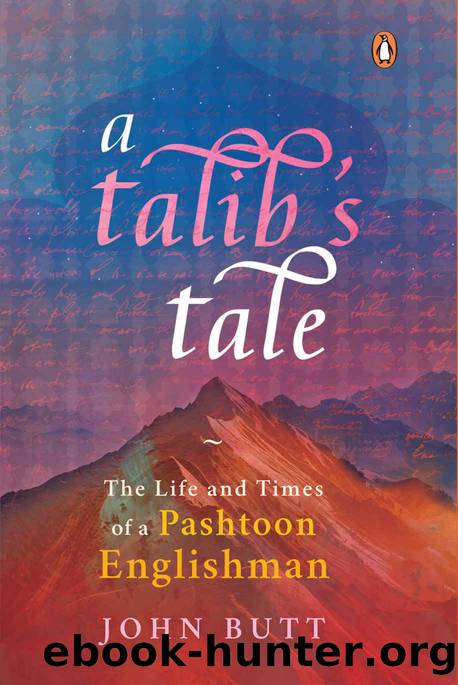A Talibâs Tale by John Butt

Author:John Butt [Butt, John]
Language: eng
Format: epub
ISBN: 9789353058029
Publisher: Penguin Random House India Private Limited
Published: 2020-03-16T07:00:00+00:00
What this Hadith meant, Shaykhâal-Quran used to explain, is that the Holy Prophet was devoted to promoting womenâs rights. Shaykhâal-Quran dedicated many hours of his lectures to extolling the elevated role of women as guardians of the home.
Madrasa students practice more repetitionâtakrarâthan silent revision as is the practice in the West. This system of takrar in Panjpir was based on interaction. One student, who excelled in his studies, would repeat the lesson of the day to two or three other students who were in his revision group. In these revision groups, there was more discussion of the content of classes than during the lecture itself, when students did not ask questions. Madrasa students liken the process of preparation for classes to a farmer tilling his field prior to planting a crop. This part of the process is done by the teacher, who prepares in advance for each class that he gives. It is the teacher also who then sows the crop. The teacher, after all, is the farmer. The next stage, of ensuring that the lesson sinks inâlike the farmer levels the ground after planting his cropâis takrar, the repetition of what one has learnt.
In the early 1970s, Maulvi Tayyib, the son of the Panjpir maulana, was too young to preside over these revision groups, but when I attended the Panjpir maulanaâs Dauratâal-Quran in the late seventies, he was the one who was presiding over the main revision group. Maulvi Tayyib has now inherited his fatherâs mantle and presides over the Panjpir madrasa. Just as he is the spitting image of his father physically and sounds like him when he talks, so his lectures are almost complete reproductions of what his father used to say and that Tayyib used to repeat in his revision sessions at the end of each day. One area in which Tayyib falls short of his father is in his recitation of the Quran. Whereas Shaykhâal-Quranâs recitation, both in Arabic and Pashto, was extremely tuneful, Tayyibâs delivery of the Quran recitation and its Pashto translation is somewhat monotone by comparison.
For me, much of the beauty of Islam comes from practice of the Sunna. A Sunna is basically a practice of the Holy Prophet that we emulate in our lives, little things such as putting extra water in oneâs soup in the evening so that there is enough to give to oneâs neighbour. Visiting the sick is another Sunna. âInshallah, you are being purified by the virtue of your sicknessâââtuhooran in sha Allah,â Muslims are encouraged to say to the sick person, or words to that effect: words of upliftment and encouragement. I have had many occasions to visit the sick and have witnessed with my own eyes the improvement in a personâs condition due to such a visit. Part of the etiquetteâthe adabâof visiting the sick is that one should not stay for a long time, lest the sick person becomes tired. There are countless Sunnas of this nature, covering the way one sleeps, the way
Download
This site does not store any files on its server. We only index and link to content provided by other sites. Please contact the content providers to delete copyright contents if any and email us, we'll remove relevant links or contents immediately.
What's Done in Darkness by Kayla Perrin(25500)
Shot Through the Heart: DI Grace Fisher 2 by Isabelle Grey(18219)
Shot Through the Heart by Mercy Celeste(18160)
The Fifty Shades Trilogy & Grey by E L James(17774)
The 3rd Cycle of the Betrayed Series Collection: Extremely Controversial Historical Thrillers (Betrayed Series Boxed set) by McCray Carolyn(13189)
The Subtle Art of Not Giving a F*ck by Mark Manson(12912)
Scorched Earth by Nick Kyme(11832)
Stepbrother Stories 2 - 21 Taboo Story Collection (Brother Sister Stepbrother Stepsister Taboo Pseudo Incest Family Virgin Creampie Pregnant Forced Pregnancy Breeding) by Roxi Harding(11040)
Drei Generationen auf dem Jakobsweg by Stein Pia(10217)
Suna by Ziefle Pia(10186)
Scythe by Neal Shusterman(9259)
International Relations from the Global South; Worlds of Difference; First Edition by Arlene B. Tickner & Karen Smith(8608)
Successful Proposal Strategies for Small Businesses: Using Knowledge Management ot Win Govenment, Private Sector, and International Contracts 3rd Edition by Robert Frey(8419)
This is Going to Hurt by Adam Kay(7695)
Dirty Filthy Fix: A Fixed Trilogy Novella by Laurelin Paige(6453)
He Loves Me...KNOT by RC Boldt(5804)
How to Make Love to a Negro Without Getting Tired by Dany LaFerrière(5378)
Interdimensional Brothel by F4U(5304)
Thankful For Her by Alexa Riley(5161)
